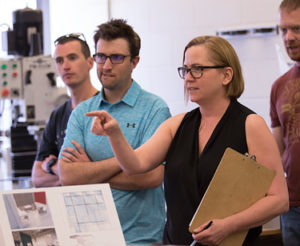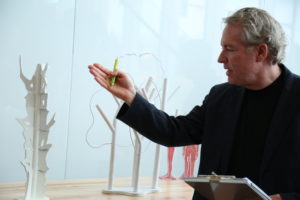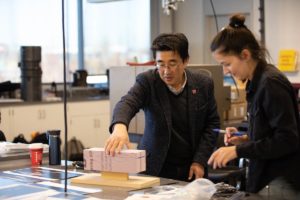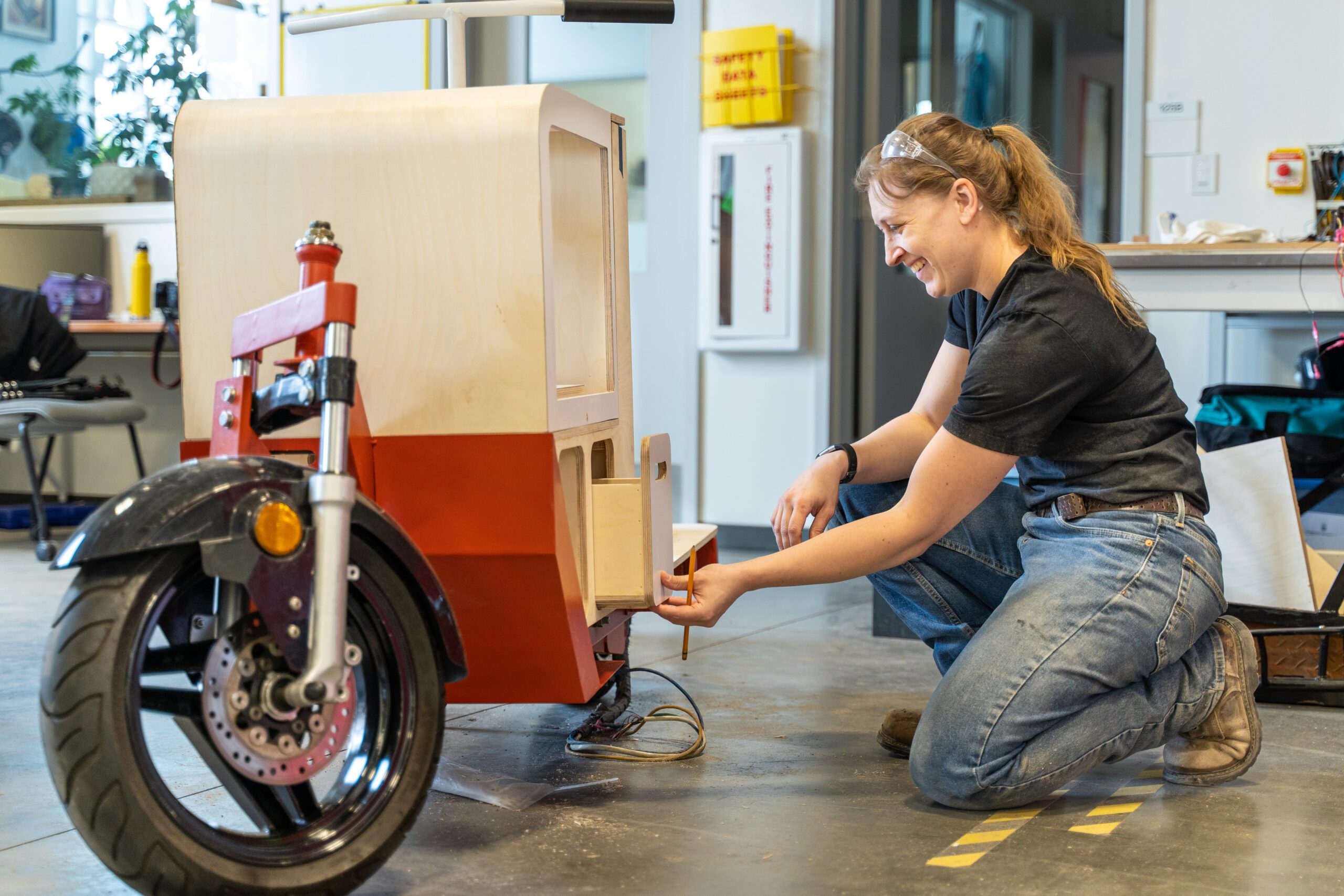Request Information
Ready to find out what MSU Denver can do for you? We’ve got you covered.
 The Industrial Design program focuses on teaching the skills, knowledge, and dispositions required to facilitate product design for manufacturing industries. An industrial designer typically creates new product ideas or re-designs existing products in a collaborative effort with marketing, engineering, and production teams. Designers create and develop product ideas and then communicate those ideas to clients and production entities through technical drawings, concept and final renderings, mock-ups, models and prototypes.
The Industrial Design program focuses on teaching the skills, knowledge, and dispositions required to facilitate product design for manufacturing industries. An industrial designer typically creates new product ideas or re-designs existing products in a collaborative effort with marketing, engineering, and production teams. Designers create and develop product ideas and then communicate those ideas to clients and production entities through technical drawings, concept and final renderings, mock-ups, models and prototypes.
 The curriculum at MSU Denver prepares students for professional design practice by teaching graphic and verbal presentation skills as well as hands on technical skills to enhance their innate creativity. Collaborative projects with other disciplines and industry partners are a vital part of the curriculum and typically occur in the design studio classes. Students also do a professional internship as their senior experience to further enhance the real world learning the department strives for. Students are required to pass a second-year progress evaluation at the end of the sophomore year to allow registration for upper division studio courses thus maintaining the quality of the program’s graduates. Graduates earn a Bachelor of Science degree. A minor in Industrial Design is also available.
The curriculum at MSU Denver prepares students for professional design practice by teaching graphic and verbal presentation skills as well as hands on technical skills to enhance their innate creativity. Collaborative projects with other disciplines and industry partners are a vital part of the curriculum and typically occur in the design studio classes. Students also do a professional internship as their senior experience to further enhance the real world learning the department strives for. Students are required to pass a second-year progress evaluation at the end of the sophomore year to allow registration for upper division studio courses thus maintaining the quality of the program’s graduates. Graduates earn a Bachelor of Science degree. A minor in Industrial Design is also available.
The Industrial Design B.S. is accredited by the National Association for Schools of Art and Design.

The primary purpose of schools of art and design is to help individual students turn talent, inspiration, creativity, and dedication into significant potential for service to the development of art and design culture in its multiple dimensions. Therefore, the focus of NASAD’s work is on issues of art and design content and educational substance as applied to the preparation and training of art and design professionals at the highest possible levels.
NASAD is the only accreditation that the Industrial Designers Society of America recognizes.

The department has an active student IDSA chapter and faculty involved in the national leadership of IDSA. Through this solid foundation of an accredited curriculum, and real-world learning opportunities, the program’s graduates are well equipped to meet the challenges of the competitive Industrial Design industry.
The Industrial Design Department is committed to fostering a dynamic, experiential learning environment that cultivates critical thinking, innovative problem-solving, and a deep sensitivity to human, social, and cultural contexts. Through a balanced integration of aesthetics, technology, and cultural awareness, we equip our students with industry-ready skills that prepare them for professional success.

In collaboration with the professional community, we enhance the development of essential competencies, ensuring that our graduates are well-prepared to excel as entry-level industrial designers from day one.
The department goals to fulfill the mission are:
By 2030, the Industrial Design Department will be recognized as a globally competitive design program in industry-connected design education, producing graduates who are not only highly skilled designers but also entrepreneurial, technologically fluent, and globally minded problem solvers.

Through a deep understanding of the experiential world, our students will master both traditional craftsmanship and emerging technologies, developing unique strengths that set them apart in the global design community.
Our program will seamlessly integrate cutting-edge design methodologies, advanced digital fabrication, and sustainable practices, ensuring graduates are adaptive, forward-thinking, and in high demand across diverse industries.
Thank you for your interest in the Department of Industrial Design at Metropolitan State University of Denver!
Located on the Auraria Campus and in the center of downtown Denver, Industrial Design students benefit from a vibrant and diverse student community.
Email: [email protected]
Campus Location:
Aerospace and Engineering Sciences Building
1449 7th Street
Suite 200A
Denver, CO 80204
Mailing Address:
MSU Denver – Industrial Design
PO Box 173362
Campus Box 90
Denver, CO 80217-3362
Office Hours: 12/15/25-1/16/26
Monday-Friday: 8:30am–3pm
The university will be closed 12/25/25-1/2/26